A few weeks ago, I was moving a load of manure to a family in Lisbon. When I dumped the load, I saw a soft shelled egg sitting on top of the manure pile. I did a little digging and discovered 9 snake eggs (the size of a small chicken egg). I collected them and brought them back home to show the family. A little investigating around the edge of our manure pile revealed another 8 eggs, for a total of 17 snake eggs. Earlier this year, we had a black rat snake that was about 5′ long hanging around the manure pile. Apparently, she decided the edges of our pile were a good place to lay eggs. I thought I took some pictures at the time, but I guess I didn’t get any. Since Anna wouldn’t let us keep them in the house, we buried them back into the manure pile.
Today, Amanda went to investigate where we buried the eggs, and we found 3 juvenile rat snakes. We stopped digging to prevent disturbing any unhatched eggs. Anna still won’t let the kids keep one as a pet, but all 3 kids took turns holding the baby snakes.
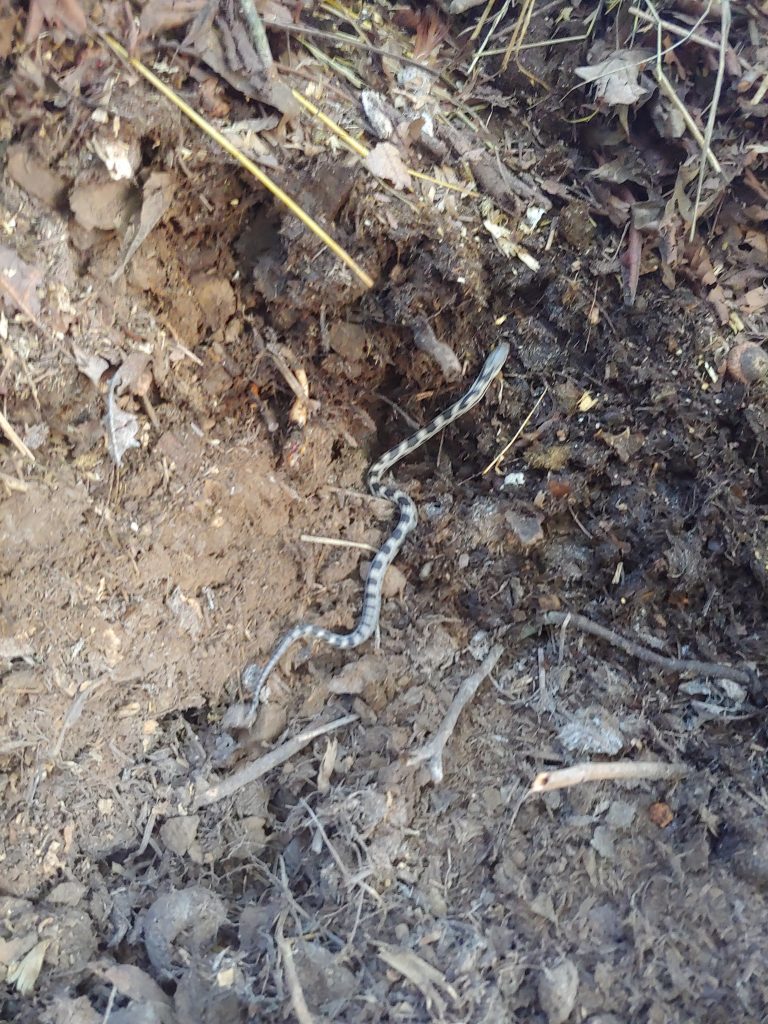
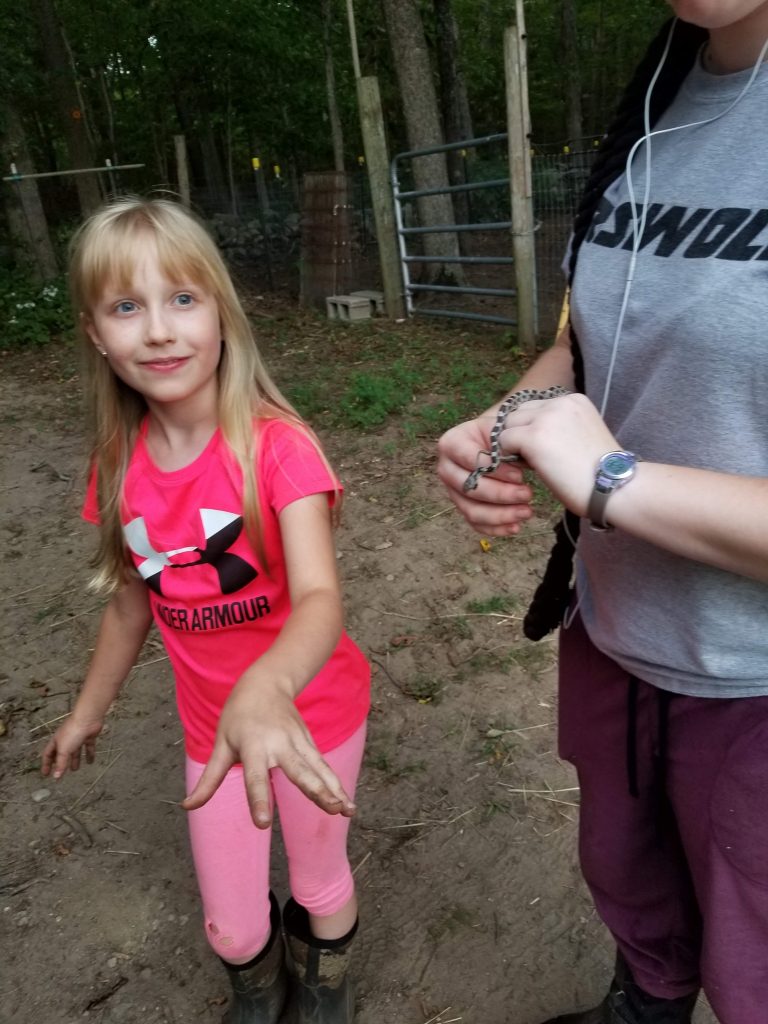
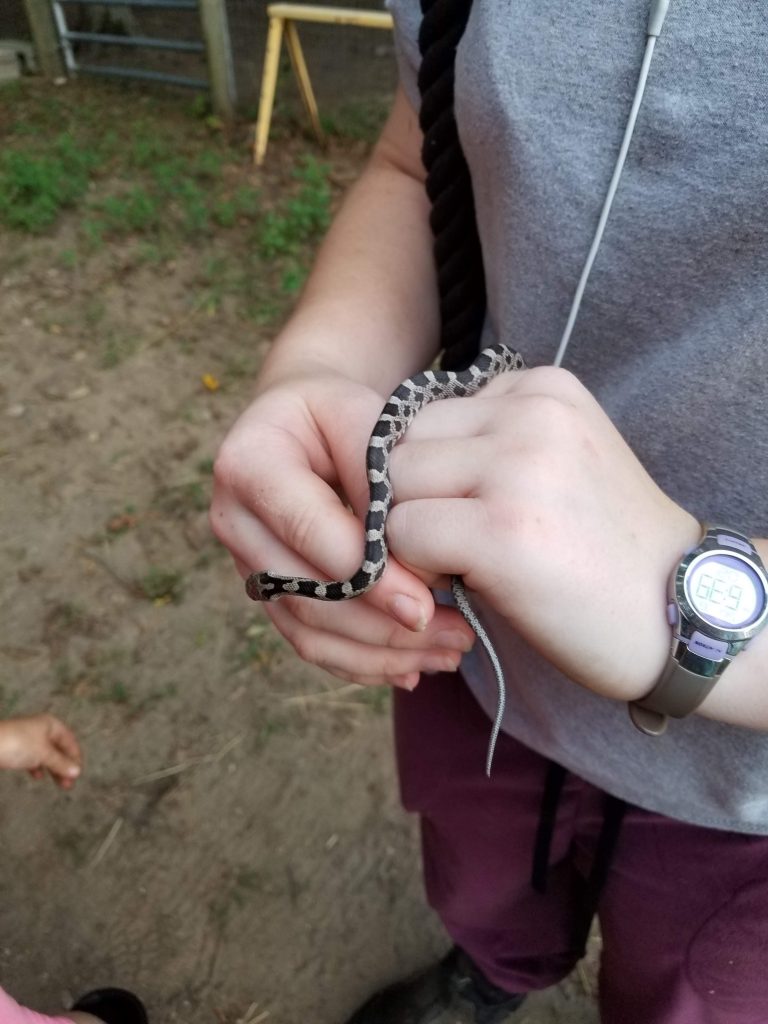
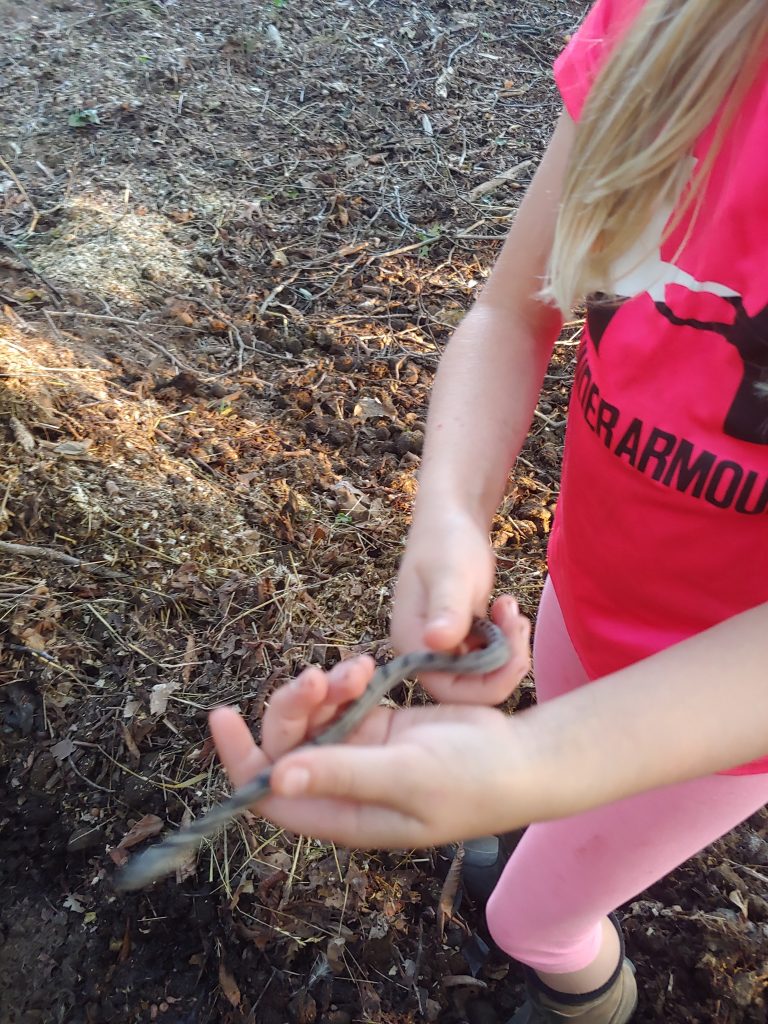
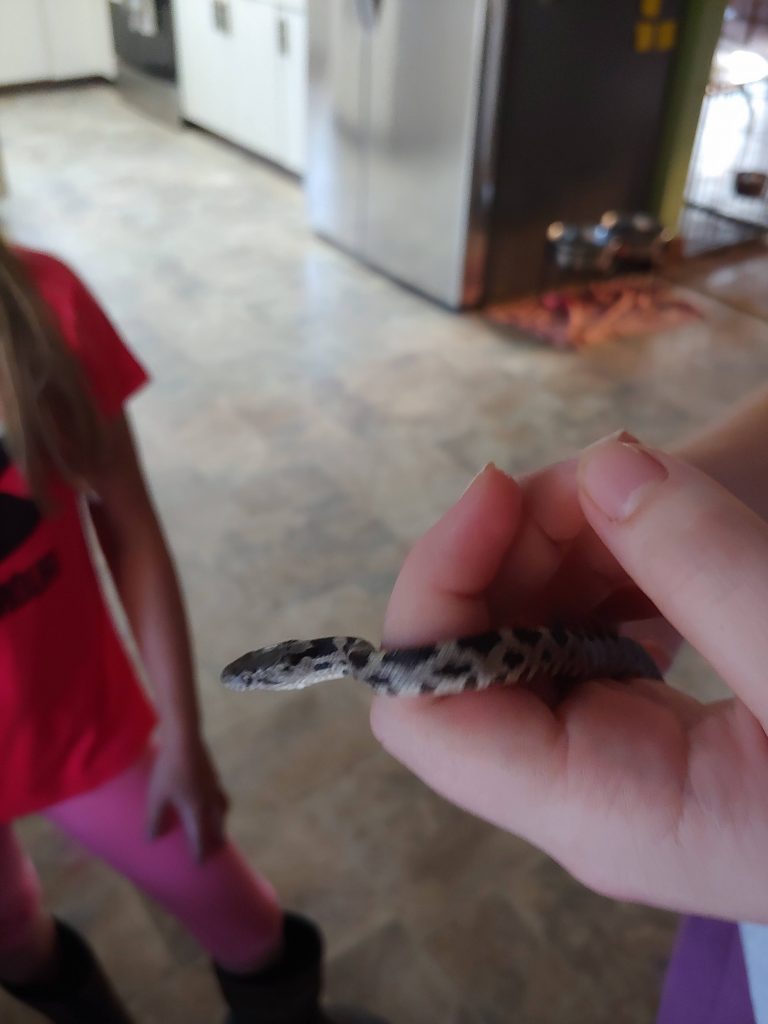
I thought rat snakes were all black on top; guess babies are different?
The adults are black, the juveniles are multi-colored and look similar to milk snakes.
So if you hadn’t seen the adult snake, you wouldn’t have know they were non-poisonous?
No, I still would have known it was not venomous. The only venomous snakes in our area are copperheads and they are rare. Rattlesnakes live in western CT. Either way, venomous snake have a more diamond shaped head. While juveniles are harder to identify, I spent time previously studying juvenile snakes from our area.
That’s so cool. We love rat snakes. Had a few juveniles inbreeding pool last week